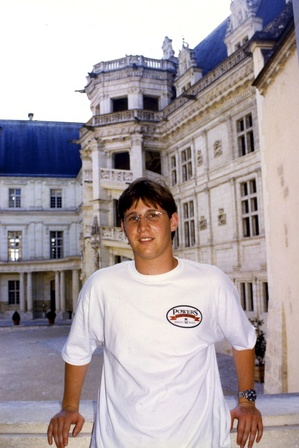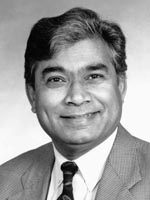Andrew Kukes graduated from his high school at the top of his class with an acceptance letter to Princeton University in his pocket.

Andrew Kukes in college.
Courtesy photo
“It was almost as if he had lost his job,” Jeff Kukes said. “Once he graduated, he really didn’t know what to do with himself.”
The depression and sadness that ensued paralyzed Andrew. He eventually was diagnosed with social anxiety, but it was difficult for him to find treatment that helped, his father said.
Andrew moved to Santa Monica, Cal. with his brother. One month before his parents were set to visit in the summer of 2009, Andrew killed himself at the age of 30 years old.
In their son’s memory, the family started the Andrew Kukes Foundation for Social Anxiety.
The foundation is now partnering with the Michigan Psychoanalytic Institute -- which has offices in Ann Arbor and Farmington Hills -- to pilot a program to help people overcome their social anxiety.
“The mission is to really spread the word about social anxiety,” said Jeff. “To educate people that are sufferers, and people in the mental health community.”
The pilot program has been initiated by the Michigan Psychoanalytic Institute at the request of the Andrew Kukes Foundation.
Social anxiety is often a quite normal experience for many people, as it’s an individual’s response through physical sensations like blushing and sweating and anxious thoughts to interacting with other people or large groups.
Social anxiety becomes a problem when an individual is so paralyzed that it causes them to avoid social situations.
The program team consists of 15 clinical psychoanalysts. Dr. Dushyant Trivedi is the clinical director and Dr. Marvin Margolis is the project director.
“We felt we were a logical choice to provide care for these kinds of patients,” said Trivedi. “These patients are complex cases.”
The model of psychoanalysis now in which patients are analyzed for 20 to 30 minutes, diagnosed according to the Diagnostic and Statistical Manual of Mental Disorders and then prescribed a medication does not work for everyone, Trivedi said.
“It’s a pretty shoddy way of doing it,” Trivedi said. “When you label something as one particular disorder, it limits things -- and people think there’s a formula. We want to go beyond the formula.”
The program pairs one-on-one intensive psychotherapy to help individuals deal with the social anxiety in behavioral terms with medications in some cases, Trivedi said. Treatment will last for a period of several years.

Dr. Dushyant Trivedi
Courtesy of MPI
“Most of our patients were in multiple treatments that failed them: A lot of these patients, because they are so paralyzed, they don’t have jobs,” Trivedi said. “Many of the people we run into are quite educated individuals: One is a musician, one is a college professor; they are quite otherwise accomplished people.”
Jeff Kukes described social anxiety as the feeling of fear that you get when you don’t want to stand up in front of an audience or large group of people - multiplied by 100.
“It’s a performance-based anxiety,” Jeff Kukes said. “When it gets to the point that it’s impacting your life; when you won’t take a certain job because you know that you’re going to interact with people, then it becomes a problem.”
Patients chronically paralyzed by social situations require more frequent appointments, more than one interventionist, longer treatment and more integrated care plans, Trivedi said.
“It can eat you up,” Jeff Kukes said. “Left untreated it keeps getting worse and worse it takes about 10 years for people to seek help.”
Jeff Kukes said the biggest indicator of his son’s social anxiety that he retrospectively realizes was how shy Andy was.
“The classic response is that they’ll outgrow it,” Jeff Kukes said. “Shyness doesn’t create the concern that it should.”
Social anxiety is often the root of many other mental health problems, Trivedi said, and can stem from deeper issues including abuse, neglect and bullying.
“It’s a question of how to alleviate the damage that social anxiety has done to rehabilitate them,” Trivedi said. “It would be a process so it would last over a longer time, so these changes stick and social anxiety becomes a symptom that they have worked around.”
The partnership between the Andrew Kukes Foundation and Michigan Psychoanalytic Institute is a long-term project, said Lori Blumenstein-Bott, executive director of the foundation.
The Andrew Kukes Foundation is contributing about $27,000 in the first year of the partnership for the project.
“It’s mainly focused on the funding of the team approach to working in complicated cases,” Blumenstein-Bott said.
Blumenstein-Bott estimated the partnership would likely last about five years, after which they’ll analyze the data to develop best-practice guidelines to treating individuals with social anxiety.
Those interested in the Kukes Foundation project treating social anxiety patients should call the Michigan Psychoanalytic Institute at (248) 539-2223.
Amy Biolchini covers Washtenaw County, health and environmental issues for AnnArbor.com. Reach her at (734) 623-2552, amybiolchini@annarbor.com or on Twitter.